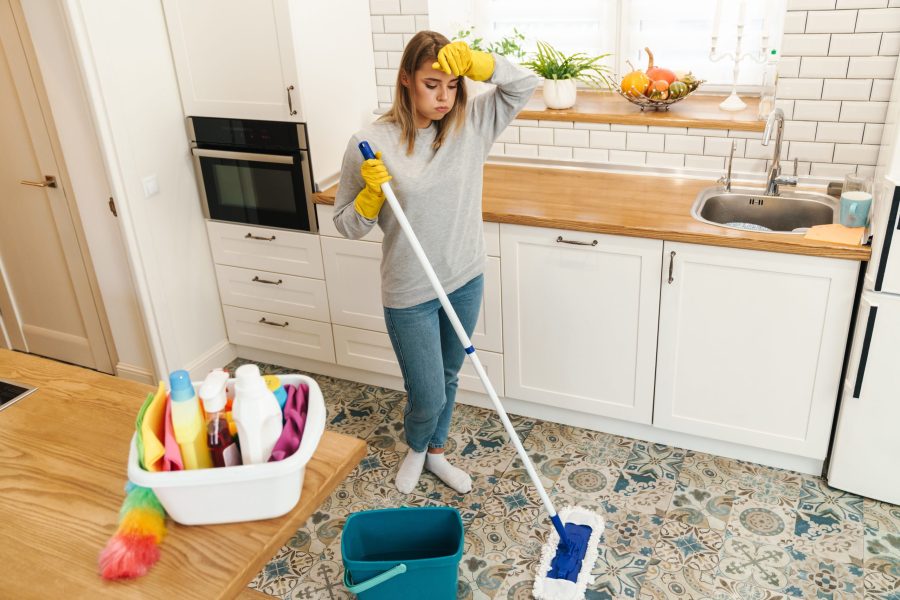Whether you have concrete floors, vinyl, ceramic, or any other type, keeping them moisture-free helps them reach their intended lifespan. That said, spills and flooding issues are fairly common and usually come without warning. This can lead to serious damage to your floor, especially when it comes to materials like hardwood. So then, what’s the best thing to do after such an exposure? Read on to know the best course of action.

Remove Standing Water
First, you need to get rid of the standing water from the floor. If there are furniture or rugs on the floor, be sure to check whether they are soaked as well. Removing soaked water from objects helps prevent mildew and mold growth. Plus, it prevents further damage from happening to your floor. For best drying results, you can use a wet vacuum.
Completely Dry Off the Floor
If you have hardwood flooring, using rugs and wet vacuums won’t guarantee a dry floor. Therefore, you need to consider using a dehumidifier to dry the floor completely. Also, you can leave the windows open to bring in more air for faster drying.
Check For Mold
If your floor got exposed to water for a few days, then the chances are that there are some molds already setting in. Since molds are harmful to your health, the last thing you should expect is to have them grow in your home/office. Pay attention to odor smell, water stains, and visible spores as you check the floor. Also, you can use a mold test detector for convenience. If you notice signs of mold, scrub it off using trisodium phosphate (TSP) or baking powder.
Do a Moisture Test
You should take a moisture test before you can say you are completely out of water-related problems on your floor. Sometimes, wood flooring can still hold some moisture despite attempts to make it dry. Experts recommend the moisture content of wood flooring to be between 6 to 9%. If the moisture content exceeds the range, you need to contact experts for professional water damage restoration services.
Final Thoughts
If your flooring is exposed to water, don’t wait for it to dry on its own. Rather, you should consider the steps mentioned above to facilitate its drying. Remember that water can shorten the lifespan of floors, especially if hardwood is used. Lastly, if you don’t dry off the water, you’ll end up spending more on replacing the floor due to damages or mold infestation.